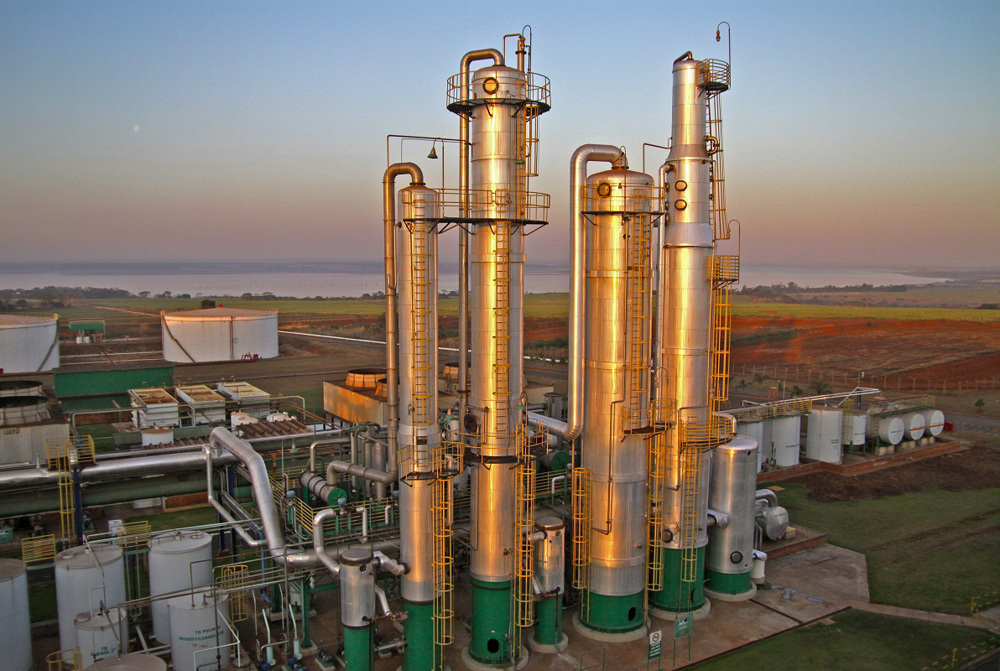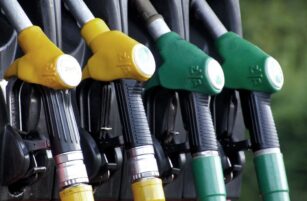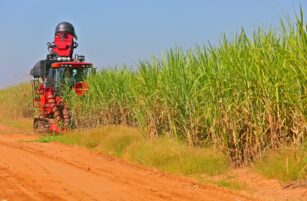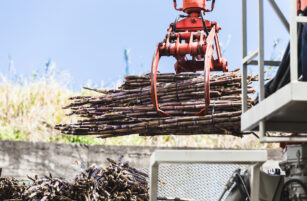Opinion Focus
- The average price of Brazilian CBIO carbon credits hit a record, high of over BRL170 Tuesday
- Distributors have already met more than 50% of their targets
- Demand for non-binding parties registers significant increase in June
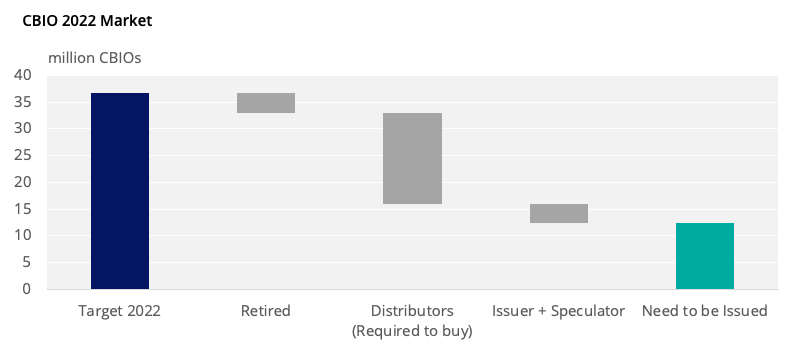
CBIO Prices Soar
- In May, the volume of CBIOs rose 54% from April to 7.5m.
- Since mid-May CBIO prices began to climb sharply.
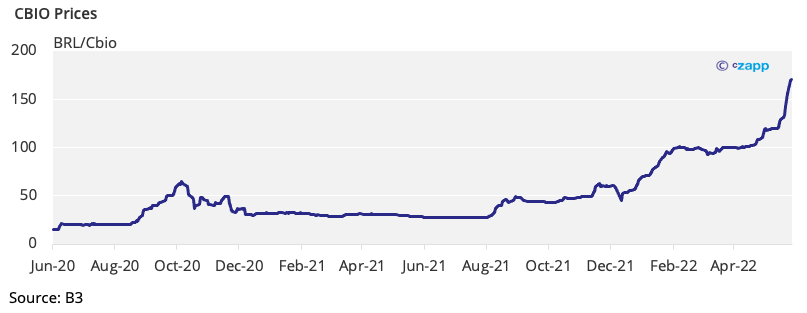
We believe that the behavior of the CBIO price is down to:
- The distributors are bringing forward CBIO purchases, afraid that offers on the market could become lower in upcoming months – the number of CBIOs offered so far in 2022 was 13.95m, almost 1 million lower yoy.
- This year the mandate is also higher than in 2021. The mandatory volume last year was 24.86mi CBIOs while the current mandate is 35.8mi,
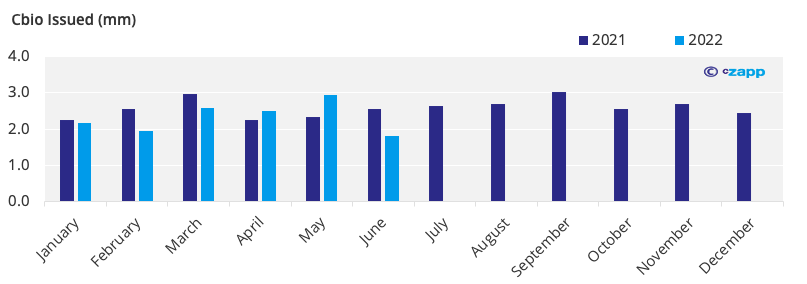
- In May there was an uptick in CBIO issuance because ethanol sales by mills rose due to favorable biofuel prices.
- However, an imminent tax change has created uncertainty about ethanol demand, which may affect the issuance of CBIOs.
- In addition to the political and tax insecurity of the market, the uncertainty of the size of this crop can be added to this – which impacts the supply of CBIOs for this year.
- And finally, a significant increase in the market share of non-obligated parties.
- So far, speculators (a non-obligated party) have had a meager share of the market.
- However, from May until now, the volume purchased from the non-obliged sector has almost tripled.
- We believe that this movement may have pushed the average prices up even though the volume is still low compared with obligated parties’ total volume.
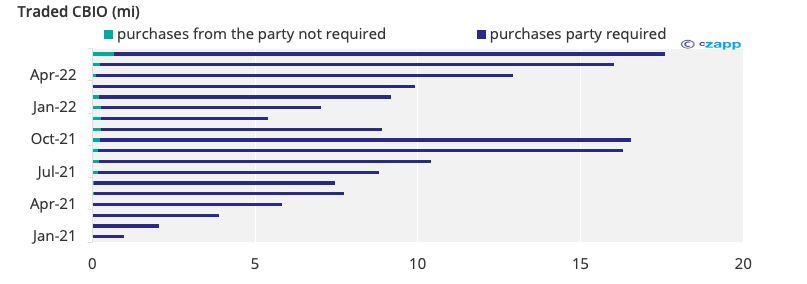
Balance 2022 and forecast of 2023
- Our balance sheet so far shows that this year’s CBIO balance is already lower than 2021 by almost 4m.
- Moving forward to 2023, a possible reduced supply combined with a higher target could result in a structural deficit in the CBIOs market.
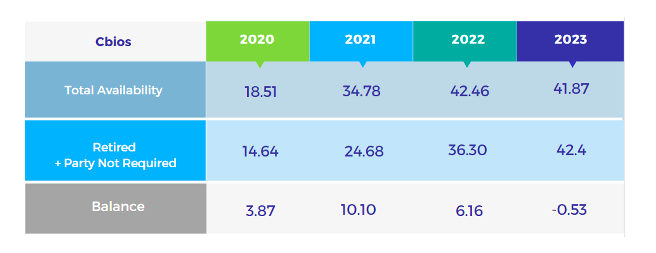
- This can result in:
- A continuation of high CBIO prices
- A reduction in the preliminary target of 42.4m CBIOs for 2023
Reminder: What is RenovaBio?
- RenovaBio is the Brazilian national biofuels program launched in 2016
- The main instrument of the program, in accordance with the Paris Agreement, is the establishment of annual national decarbonization targets for the fuel sector.
- The national targets will be divided into mandatory individual targets for fuel distributors
- To meet their goal, fuel distributors will need to acquire CBIO certificates on the stock exchange
- Each CBIO corresponds to a tonne of carbon that is not released into the atmosphere.
- Biofuel producers voluntarily issue CBIOs, and the amount each mill can issue is based on their energy-environmental efficiency rating of the volume of biofuels sold.
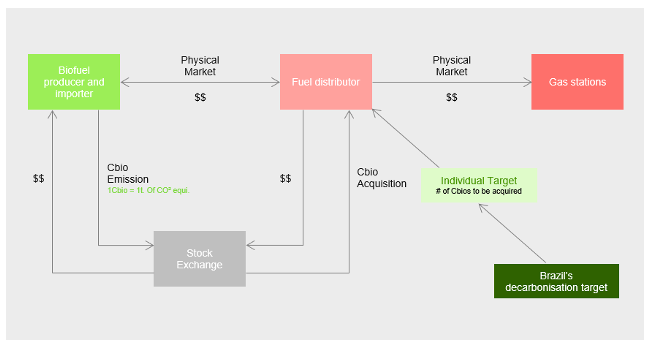
Other Insights That May Be of Interest…
Why Brazil’s ICMS Tax Matters to the Ethanol, Sugar Markets
New Brazil Tax Proposals Could Be Bearish for Ethanol, Sugar
Explainers That May Be of Interest…
